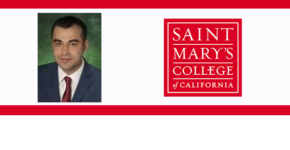 Repression of citizens can be an impulsive act of a desperate politician.
Repression of citizens can be an impulsive act of a desperate politician.
Mustafa Kirisci, visiting assistant professor in the department of politics at Saint Mary’s College of California, explores why this might start in childhood.
Mustafa Kirisci is a visiting assistant professor of political science at Saint Mary’s College of California.He has received his masters degree in criminal justice and doctoral degree in political science from University of North Texas. His research interests include terrorism, repression, civil conflict and international conflict. His published papers appear in Terrorism and Political Violence, Government and Opposition, Critical Studies on Terrorism, and International Negotiation.
Impulsiveness of Leaders and State Repression
Why are some political leaders more repressive than other leaders? The literature stresses the importance of many different factors that incentivize or disincentivize political leaders from using repression when they are in office, such as whether the country is a democracy or not, or the presence of internal or external threat, or ratifying human rights agreements. I build the literature by exploring the role of impulsiveness of leaders on state repression. State repression causes grievances on a society and usually backlashes in the long term.
I argue that leaders are more likely to decide to use repression against the citizens as they become more impulsive in the sense that they fail to consider long term consequences of using repression. Research has also shown that impulsiveness is correlated with low levels of self-control. According to Self-control Theory of Crime, individual self-control improves with socialization with parents.
Given that, I contend that leaders who were having less opportunities to socialize with their parents in their childhood or adolescence are more likely to develop low self-control and become more impulsive, thereby increasing their chances of becoming a more repressive leader. I test this hypothesis by using cross national data sets.
The empirical results of my global analysis have revealed that leaders whose moms were in labor force and those who received education in boarding schools are more repressive. In addition, I also found found that leaders who were orphans with the absence of one or both parents are also more likely to use repression against their citizens. These results are indicative of the significant role of parent-child relationship in childhood and adolescence on behaviors and decisions of political leaders.
